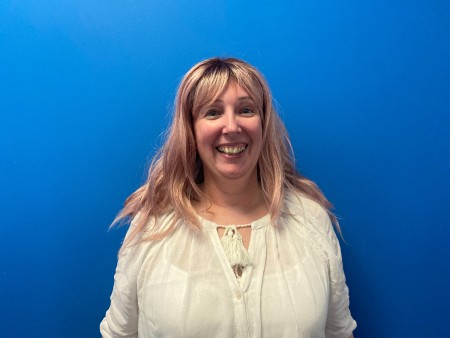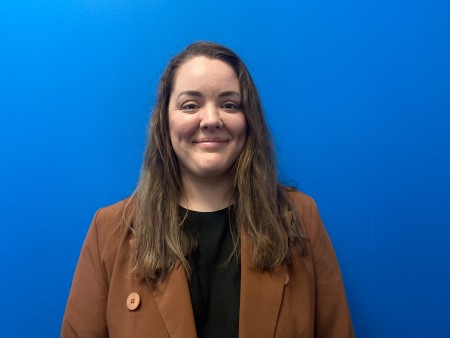Coming into hospital can be a worrying experience for people who have a learning disability and/or autism.
We want you to have a good experience and this page tells you about the help and support available to you.
Learning Disability Acute Liaison Nurses
We have dedicated Learning Disability Acute Liaison Nurses that you, parents, carers and friends can contact before you come into hospital.


Any health care professional or social worker who supports you can also contact us.
You can call us on 0191 282 8900
There is someone here from Monday to Friday from 9am in the morning to 5pm in the evening.
Or email us at learning.
If you are coming into hospital, we can help you and hospital staff prepare. These are some of the things we can help with:
- We can arrange for someone to come with you to your first appointment, this is called a pre-assessment visit. It is important for the staff to talk to you about your health and how you are feeling
- We can arrange a visit to the ward or department where you can meet the staff who will be caring for you
- We can make sure you have a ‘Health and Care Passport’ to bring into hospital which tells staff the hospital staff important things about you. We can help you to complete this. You can find a copy of the document to download on this page under ‘Health and Care Passport’
- If you need extra support we can visit you on the ward and work with staff and carers to make you feel safe and well looked after
- If you are having an operation or tests we can give you easy read picture leaflets called ‘Health Cards’. We have health cards for adults with learning disability and also health cards designed specifically for children. These aim to help you understand your treatment as well as helping to reduce any anxiety you are feeling. You can find a copy of these to download on this page under ‘Health Cards’
- You maybe asked to make choices about your treatment
- We can talk with you, your family and staff to understand if you are able to make those choices- this is called capacity. You might need support to do this
- We can help if you find it hard to say how you are feeling. For example, when you have a pain, or you are unhappy
- There will be a meeting on your ward to plan for when you go home, so that staff who support you in the community understand how to look after you
- We can help you understand what treatment you have had in hospital and help you to understand about any new medication you may need to take
Health and care passport
This is a document to bring into hospital which tells staff important things about you to help us care for you. Things like how you take your medication, how you eat and drink.
This should be completed by you and the people that know you best, such as a family member, friend or carer.
By filling it in, you are giving permission for your information to be shared with health and care staff who are caring for you. This is called consent.
It helps us to involve you in making decisions about your care and to make any reasonable adjustments (changes to the way we usually do things to put you at ease). For example, longer appointment times, quiet rooms, easy read information.
You should take your health and care passport to every health appointment.
You can get more information about medical records through the Health Information Exchange on the Great North Care Record
Your Health and Care Passport looks like this
You can download the Health and Care Passport here
We also have a health passport designed to support autistic people when they are in hospital.
You can download this here
Hospital Grab Bag
Before you come into hospital, we’ve made a list of useful items to bring with you. These are called ‘Hospital Grab Bags’ in case you need to come into the hospital in an emergency.
You should keep the bag somewhere easy to find in case someone else needs to bring it in for you. A good place to keep your bag would be on the back of your bedroom door.
Find out more here
Health Cards
If you are having an appointment with us or coming into hospital for a test or operation, we can give you easy read picture leaflets called ‘Health Cards.’ These can be used to help explain what you can expect when you are with us.
The cards can also be used to ask and answer questions, for example to show how a patient is feeling and pinpoint if they are experiencing any pain.
Health cards look like this:
We have health cards for children and adults. You can download copies here:
Let us know what you think?
We welcome your feedback on anything we can do to support patients with a learning disability and or autism. You can contact us via various methods of communication.
Useful websites and documents
Our community learning disability service supports children and adults with a learning disability and complex health needs in Northumberland and North Tyneside.
Other websites
Cumbria, Northumberland Tyne and Wear learning disability and autism services
